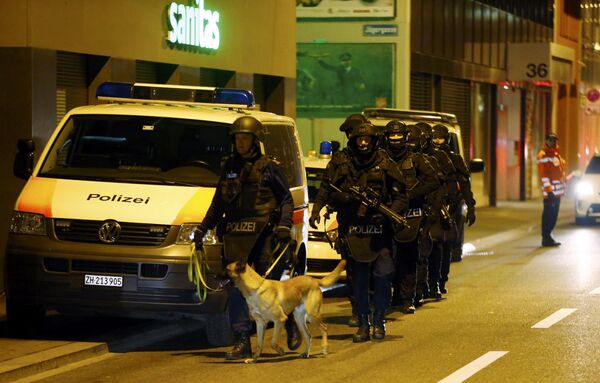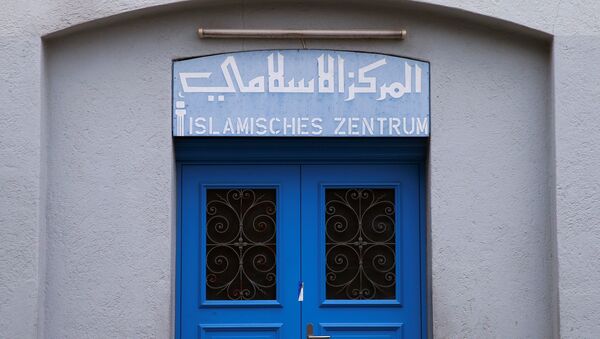The shooting, the statement said, was an "alarm signal" that should result in Islamophobia being "pushed to the margins" of Swiss society, "alongside racism and anti-Semitism."
Kommuniqué: Offene Fragen nach Anschlag auf Zürcher Moschee — IZRS Vertreterin von PK ausgeschlossen #zurichshootinghttps://t.co/RZSfnk92YL pic.twitter.com/fKtysRjkpH
— IZRS (@Islamrat) December 20, 2016
Janina Rashidi, a spokesperson for the Council, said that the attack should not be viewed as an isolated incident, but the express product of a wider Islamophobic climate in Switzerland.
"We've seen legislation targeted at Muslims passed at a national and local level. In 2009, the construction of minarets on mosques was banned. The burka has been banned in some areas, and there are attempts to make it a countrywide prohibition, despite very few Muslim women wearing it. Some schools prohibited Muslim students from wearing the hijab, and it took the Federal Court stepping in for them to be allowed. On a personal level, Muslims have been fired from work for wearing Islamic dress, and subjected to verbal and physical attacks on the street," Janina Rashidi from the Islamic Central Council in Switzerland told Sputnik.
Despite these assaults on the dignity of Swiss Muslims, Rashidi says such incidents are invariably "trivialized" by the media and politicians, at best treated as irregular, ‘freak' occurrences, at worst ignored.
"The truth is, such happenings are a central reality of daily life for Muslims in Switzerland. Much is made of the need for Muslims to integrate into Swiss society, but some seem to think integration means completely renouncing one's religion. Muslims are keen to contribute positively to Swiss society, and live their lives unmolested. All talk about Islam in the Swiss media, and politics, must change," she added.
A 24-year-old Swiss man entered Zurich's Islamic Center and opened fire on worshippers on the evening of December 19, injuring three of the 12 in attendance. The unnamed assailant then committed suicide, his body subsequently found on a nearby river bank.

It was not the first time an Islamic centre had been attacked in Switzerland — in 2004, a Frenchman stabbed the imam of a Lausanne mosque.
Muslims account for around 5% of the Swiss population, roughly 400,000 people. A majority relocated to Switzerland from the Former Yugoslavia, with around 20% emigrating from Turkey. The vast majority adhere to the Sunni branch.
Extremism has no religion. Join us in condemning the #Switzerland Mosque attack. #PrayForSwitzerland pic.twitter.com/rjNV2sDFWO
— True Islam (@TrueIslamUSA) December 21, 2016
A 2015 study of racist and xenophobic attitudes in Switzerland, the first of its kind, has revealed one in four Swiss citizens has negative opinions of foreigners in general, one in five is hostile to Muslims and one in ten is anti-Semitic.
A report later that year, issued by the Foundation for Political, Economic and Social Research attributed much of Switzerland's Islamophobia to counterterrorism strategies that "exclusively target Muslims."


